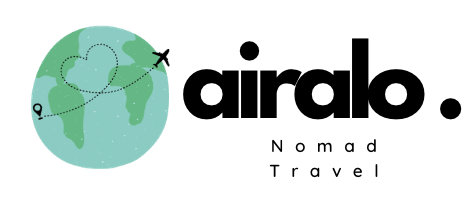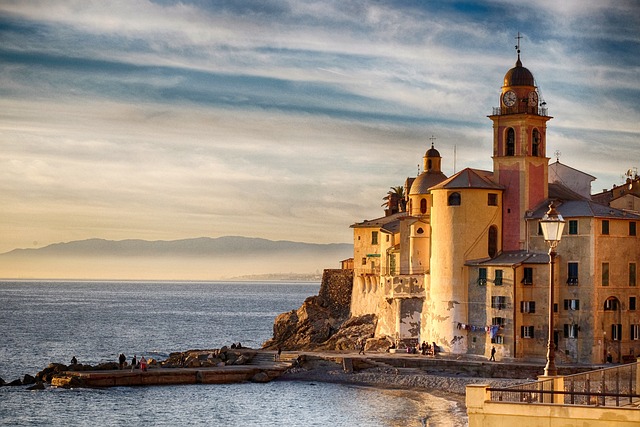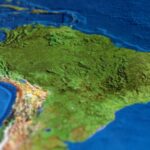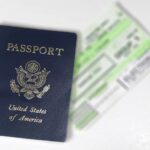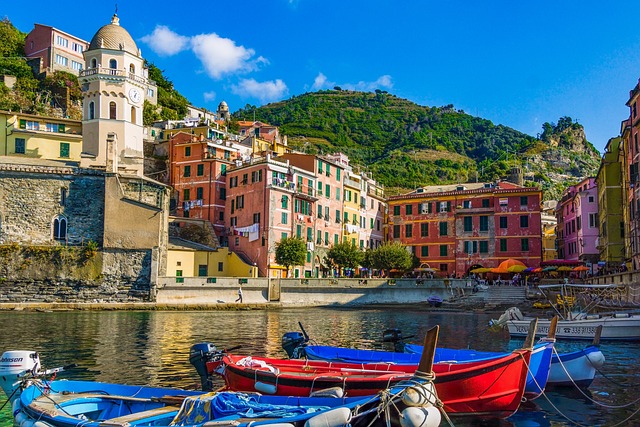
As digital nomads grow globally, more and more countries are launching specialized visas to attract remote workers who want to work and live overseas. Italy is no exception and, amid the growing trend of digital nomads and freelancers, has launched its own Digital Nomad Visa, ideal for remote workers who want to enjoy life in the beautiful Mediterranean while keeping a job. Chance. This article will introduce in detail how to apply for an Italian digital nomad visa, including visa requirements, application process, and Italy’s support policies for digital nomads.
1. Introduction to Italian Digital Nomad Visa
Overview
Italy’s Digital Nomad Visa, or Remote Work Visa, is a visa designed for foreign citizens who want to live in Italy for an extended period of time and make a living by working remotely. Unlike traditional work visas, the digital nomad visa does not require the holder to work for a local company in Italy, but instead allows the applicant to continue working remotely for any national or multinational company. This makes it ideal for digital nomads who want to maintain an international career while enjoying life in Italy.
Visa features
- Freedom to work remotely: A key feature of the digital nomad visa is its flexibility. Holders can work for any company or client worldwide as long as they can provide sufficient financial proof to prove that they do not need to rely on local economic support in Italy.
- legal residence: Unlike the tourist visa, the digital nomad visa allows the holder to legally reside in Italy and enjoy resident treatment without worrying about the length of stay. Visas are usually valid for one year and are renewable.
- No Italian employer required: Applicants do not need to work for a local company in Italy, so for remote workers, there are no geographical restrictions, and work and life can be arranged flexibly.
Italian life experience
- Culture and History: Italy has a rich historical heritage and world-class cultural attractions. Whether immersing yourself in the ancient Roman ruins of Rome or exploring Renaissance art in the museums of Florence, Italy’s cultural scene offers an unparalleled life experience for digital nomads.
- natural beauty: In addition to the history and culture of the city, Italy is also blessed with unique natural scenery. Beaches along the Mediterranean coast, ski resorts in the Alps, pastoral scenery in Tuscany, etc. all provide an ideal living environment for digital nomads.
- quality of life: Italy is known as one of the countries that enjoys a high quality of life. Italy’s food culture (such as fresh Mediterranean cuisine), warm climate, and pleasant social environment make it an ideal destination for many remote workers.
Work and Career Development
- Flexible working style: People with a digital nomad visa can continue to work for companies or clients in their home country. Whether working as a freelancer, an independent contractor, or working remotely for a multinational company, applicants can legally engage in these professional activities in Italy.
- shared office space: In big cities like Milan, Rome, Florence, etc., there are many coworking spaces suitable for remote workers. These spaces, often equipped with high-speed internet, modern office facilities and meeting rooms, help digital nomads be more productive while also providing them with opportunities to socialize and collaborate.
- digital nomad community: The digital nomad community in Italy is relatively active, especially in big cities such as Milan and Rome. Remote workers often participate in social activities and professional networking activities, which provides digital nomads with opportunities to establish connections and expand their networks with professionals in the same industry.
Taxation and Social Welfare
- tax policy: Italy’s tax policy is friendly to digital nomads. While remote workers are taxed on their income, Italy’s tax burden is relatively modest compared to other European countries. Particularly for freelancers and self-employed people, certain tax incentives and reliefs in Italy offer digital nomads greater financial flexibility.
- social Security: As an EU member state, Italy provides a complete social security system, including medical insurance, pensions, unemployment insurance, etc. People holding a digital nomad visa can enjoy a certain level of public medical and social welfare services in Italy, which provides life security for long-term digital nomads.
Visa application requirements
- Proof of finances: Applicants need to provide sufficient financial evidence to prove their ability to maintain their life in Italy. Generally speaking, this requires the applicant’s monthly income to reach a certain amount, usually more than about 2,000 euros per month. The specific standard depends on the personal situation and family situation.
- Remote work certification: Applicants need to provide a remote working agreement from their current employer or client, proving that they can work remotely in Italy and are not required to work for a local Italian employer.
- health insurance: Applicants are also required to purchase valid health insurance to ensure that their medical needs are covered during their stay in Italy.
2. Applicable objects
Italy’s digital nomad visa is suitable for many types of remote workers and people who intend to live in Italy for a long time. Specifically, the following categories of people can apply for this visa:
1. Remote workers
Italy’s digital nomad visa offers a convenient option for those employees or freelancers who work for foreign companies and can work over the internet.
- employee: If you are an employee of a foreign company and can complete work tasks in a remote environment, you are fully qualified to apply for this visa. For example, programmers, network engineers, marketing experts, customer support staff, etc. As long as your work is not restricted by geographical location and can be completed over the Internet, you meet the definition of a remote worker.
- freelancer: If you are a freelancer and the services you provide are usually traded and completed through online platforms or the Internet, such as designers, copywriters, translators, etc., then you can also apply for a digital nomad visa to start your business in Italy. freelancing career.
2. Self-employed persons
You can also apply for this visa if you are self-employed, own your own company or run some kind of online business.
- business owner: For example, if you operate an online store, provide consulting services, or operate an independent brand, if your business mainly operates through the Internet, you can apply for a digital nomad visa as a “self-employed person.”
- Internet business: In addition to traditional self-employment industries, social media management, e-commerce, web design, SEO optimization, etc. also meet the criteria for making a living through remote work. This visa is an ideal option for those who have their own online business or platform and want to live in Italy for an extended period of time.
3. People in creative industries
Italy’s digital nomad visa is very friendly to those working in the creative industry, especially those individuals engaged in creative work such as visual arts, writing, photography, etc.
- Artists & Designers: Including illustrators, animators, graphic designers, UI/UX designers, etc., these creative industry professionals work remotely around the world and collaborate with clients through the Internet, fully meeting the application standards for the digital nomad visa.
- Writer and Blogger: Writers, bloggers, video bloggers, etc., especially those who rely on online platforms for content creation and distribution, can also apply for this visa. These creators often have a global audience and share their personal works and insights through social platforms such as blogs, YouTube, and Instagram. There are no geographical restrictions on remote work.
- Photographers & Videographers: Whether you are an independent photographer, a wedding photographer, or a professional engaged in product photography and image editing, as long as your work can be done through the Internet, the Italian Digital Nomad Visa also provides you with the possibility of legal residence.
4. Retirees
For some retired individuals, if you have a sufficient pension or other stable source of income to support your living expenses in Italy, you may also be eligible.
- pension income earner: Italy’s digital nomad visa is not limited to working people. If you are a person who supports your life through pensions, annuities or other stable sources of income and want to enjoy a higher quality of life in Italy, the visa also provides you with opportunities.
- Investors and Financial Independents: The digital nomad visa also provides a convenient migration path for retirees who have accumulated wealth in other areas and are making ends meet through capital investments or rental income. Applicants in this category need to provide financial evidence to ensure that they can support themselves in Italy.
5. Other applicable groups
- long term traveler: Although the digital nomad visa is mainly for remote workers, if you are an individual who has been engaged in activities such as travel, blogging, and lifestyle content creation for a long time, and you have the ability to maintain a stable living income in Italy, you may also consider applying for this visa.
- Technology industry practitioners: For example, software developers, data scientists, IT consultants, etc. Talents in the technical industry usually have the conditions to work remotely, so they can also apply for this visa to enjoy the dual pleasure of work and life in Italy.
3. Visa requirements
When applying for an Italian digital nomad visa, applicants need to meet a series of specific requirements to ensure they can legally reside in Italy and work remotely. The following are detailed visa application requirements:
1. Proof of income
Proof of income is a crucial requirement in order to ensure that the applicant is self-sufficient and not dependent on Italian social benefits while in Italy.
- minimum income standard: Applicants need to prove that their monthly income is sufficient to support their life in Italy. Generally, the applicant’s monthly income cannot be less than€2,500-€3,000, this amount is usually adjusted appropriately according to different family situations. For example, if the applicant has a spouse or children, the total household income may need to be higher to ensure that each family member’s living needs are met.
- Proof of financial sources: In addition to the income amount requirements, applicants are also required to provide detailed financial documentation to prove that these incomes come from stable and reliable sources. These proofs can be bank deposit certificates, employment contracts, invoices or tax forms, etc.
- income stability: Some applicants may be required to provide additional materials to prove the stability and continuity of income. For example, bank statements for several consecutive months or proof of income from the hiring company to show that they will not suffer financial hardship while in Italy.
2. Valid passport
Applicants must hold at least one6 months validity passport.
- Passport validity requirements: The passport must be valid for at least 6 months at the time of application, which is a common requirement for all international visa applications.
- Passport copy: Applicants need to submit a scan or copy of their passport, usually the personal data page and any past visa record pages. Additionally, in some cases an old passport (if one was ever held) may be required.
3. Proof of remote work
As a core requirement for the digital nomad visa, applicants need to provide documentation proving that they are engaged in remote work, ensuring that they can continue to work for foreign companies or clients over the Internet.
- work contract: If the applicant is a remote worker or freelancer, they need to provide a work contract from their current employer or client that clearly proves the job content, salary level and working method (i.e. remote working).
- Tax records and income documents: Applicants can provide recent tax records, income receipts or invoices to prove their source of remote work income and prove the legality of the income.
- Letter from employer: If the applicant is an employee, the employer can provide a letter indicating the nature of the employee’s work, arrangements for remote work, and salary levels.
4. Health insurance
Applicants must purchase health insurance valid during their stay in Italy to ensure that necessary medical services are available during their stay in Italy.
- insurance requirements: The insurance must cover the entire visa validity period and meet the Italian government’s health insurance requirements for foreign residents. Typically, applicants are required to purchase health insurance that covers at least basic medical services, including emergency medical care, hospitalization, and possibly medical evacuation services.
- Insurance company requirements: The health insurance purchased needs to be provided by an insurance company recognized by the Italian government. Some international insurance companies may already comply with Italian regulations, but applicants should ensure that the chosen insurance company is considered valid in Italy.
- Insurance documents: Applicants are required to submit proof of insurance to prove that they have purchased health insurance that meets the requirements. Usually, the policy number, insured amount, and validity period should be listed on the insurance certificate.
5. Proof of accommodation
Applicants must provide accommodation arrangements for their stay in Italy, proving that they have a legal residence for the duration of their visa application.
- rental contract: The most common way to prove accommodation is to provide a valid rental contract in Italy, which needs to list the rental period, rental amount, landlord information, etc.
- house purchase contract: If the applicant purchases a property in Italy, the purchase contract is also a valid proof of accommodation. This contract should include the buyer, seller, and property details.
- Temporary accommodation arrangements: For those who have not yet determined a long-term residence during the application process, a booking confirmation for temporary accommodation, such as a hotel reservation or short-term rental contract, can be provided. However, after obtaining the visa, the applicant needs to provide official proof of long-term residence within the specified time.
6. Other supplementary materials
Depending on personal circumstances, applicants may also need to provide the following supplementary materials:
- No criminal record certificate: In some cases, applicants are required to provide a criminal record certificate to prove that they have no criminal record in the country where they lived in the past.
- Proof of language proficiency: Although language proficiency is not mandatory for Italy’s digital nomad visa, applicants may sometimes be asked to provide proof of basic Italian or English proficiency to ensure they can adapt to local life.
- personal statement: In some cases, applicants may be required to submit a personal statement explaining why they choose to live permanently in Italy and work remotely.
4. Application process
The process for applying for an Italian digital nomad visa is relatively clear and usually involves a few key steps. The following is a detailed application process to help applicants understand what preparations are required for each step and the specific requirements that may be encountered.
1. Prepare materials
During the application process, the first step is to ensure that all necessary documents and materials are in place. These documents are the core of the visa application and must be prepared in accordance with the requirements of the Italian Embassy or Consulate.
The main materials that need to be prepared include:
- Valid passport: Make sure your passport is valid for at least 6 months and attach a copy of your passport’s personal data page.
- Proof of income: Proving that your monthly income is sufficient to live in Italy usually requires financial documents such as bank certificates, tax returns, or remote work contracts.
- Remote work certification: Including the remote work contract signed with the employer, the freelancer’s tax records, income receipts, etc., to prove the legality and stability of your remote work.
- health insurance: Purchase medical insurance that meets Italian requirements and covers the entire stay in Italy. Documentation of insurance is required.
- Proof of accommodation: Provide accommodation arrangements in Italy, usually a rental contract or a house purchase contract, ensuring that you have a legal residence.
- No criminal record certificate: In some cases, applicants may be required to provide a certificate of no criminal record, which is usually issued by the police or relevant departments in the applicant’s country.
- Proof of language proficiency: Although not required, some applicants may be asked to submit proof of basic Italian or English proficiency.
Ensuring the validity and accuracy of these documents is key to a smooth visa application.
2. Apply online
Once all materials are ready, applicants can enter the visa application page through the official website of the Italian embassy or consulate in the country where they are located, fill in and submit the electronic visa application form.
Online application steps include:
- create Account: Many embassies and consulates require applicants to create an account on their official website before submitting an application form.
- Fill out the application form: In the application form, applicants need to fill in personal information, travel plans, remote working details and other relevant questions.
- Upload files: When submitting an application, the applicant needs to scan and upload the prepared materials to the system. Ensure all documents are properly formatted and submitted on time.
- Pay visa fees: During the visa application process, applicants need to pay a certain visa fee, and the fee amount is usually listed on the application form page. Payment methods are mostly credit card, debit card or via bank transfer.
It is important to ensure that the information is accurate when filling out the application form, especially in terms of personal information, travel plans and employment status. Errors or omissions may result in your application being delayed or rejected.
3. Interview (if applicable)
In some cases, applicants may be required to attend an interview at an Italian consulate or embassy.
The main purpose of the interview is:
- Further verification of information: Consulate staff may further confirm the applicant’s nature of work, source of income, and planned living arrangements in Italy through interviews.
- Assess applicant’s suitability: During the interview, applicants may be asked to explain their remote working situation and why they chose Italy as a long-term residence.
- Preparation for the interview: If an interview is required, applicants should prepare original copies of relevant documents and understand the living conditions, job market and visa application details in Italy in advance.
However, in most cases, interviews are only required for applicants in some high-risk or complex cases. Generally, if the applicant’s materials are complete and meet the standards, interviews are not required.
4. Wait for approval
After the visa application is submitted, the applicant will enter the review stage.
Review time:
- Typical processing time: The visa review time is usually2-6 weeks The specific time depends on the volume of applications, the efficiency of the consulate and the complexity of the materials submitted by the applicant.
- Application volume fluctuates: If applicants submit their application during peak travel seasons (such as summer or year-end holidays), processing times may be extended.
- Wait for notification: Applicants should regularly check their email and the consulate’s official website for any possible supplementary material requests or notifications. Some consulates also provide online query functions, so applicants can check the visa progress in real time.
5. Obtain a visa
Once the visa application is reviewed, the applicant will receive a visa approval notification and can go to the consulate or embassy to collect the visa.
After obtaining your visa:
- Visa validity period: After obtaining the visa, the applicant can enter Italy according to the validity period of the visa. Usually this visa will be valid within 3-6 months. The specific validity period is determined according to the regulations when the visa is approved.
- Entering Italy: After entering the country with a visa, the applicant can start to legally reside in Italy and work remotely. If long-term residence is required, the applicant may need to apply for a residence permit or go through other related procedures within a few months after entry.
- Subsequent renewal: Digital nomads may need to apply for a visa renewal if they plan to stay in Italy for a longer period of time. Renewal usually requires documents such as tax records, proof of employment and proof of income during your stay in Italy.
5. Support for digital nomads in Italy
Italy not only provides residence and work opportunities for remote workers through the digital nomad visa, but also actively creates a friendly, efficient and dynamic working and living environment for digital nomads through a series of measures and resources. Here are some of Italy’s specific support measures for digital nomads, detailing how the country engages and supports this group on multiple levels.
1. High quality of life
Known for its excellent quality of life, Italy’s blend of rich history and culture, rich artistic heritage and beautiful natural scenery provide an ideal place for digital nomads to live.
- culture and history: Whether it’s the romantic waterways of Venice or the Renaissance ruins of Florence, every city in Italy has a strong cultural heritage. Digital nomads can enjoy the opportunity to visit museums, art galleries and historical sites while working, immersing themselves in Italy’s rich cultural landscape.
- Food and lifestyle: Italy’s food culture is world-famous. From pasta to pizza and Tuscan wine, every meal can be a pleasure. Italians’ focus on quality of life and love for good food and healthy lifestyles also bring great comfort to digital nomads, allowing them to relax and unwind after work.
- natural landscape: Italy has many beaches, mountains and lakes, which are suitable for outdoor activities. Projects such as skiing, hiking, and sailing also allow digital nomads to enjoy the beauty of nature after work.
2. Friendly work space
The major cities in Italy provide a wealth of work space options, especially in large cities such as Rome, Milan, and Florence, where digital nomads can easily find a shared office space that suits them.
- shared office space: Co-working spaces in many cities are designed for digital nomads, remote workers and people in creative industries. These places often offer flexible work environments, dedicated workspaces, and relaxing social spaces that can help digital nomads be more productive while building a broad professional network.
- Facilities and services: These coworking spaces are typically equipped with high-speed internet, printing equipment, meeting rooms, breakout areas and kitchen facilities, and are mostly located in easily accessible areas for easy commuting. Some spaces also offer additional services such as corporate mentoring, career training and social events to assist personal and business development.
- Networking opportunities: Coworking spaces in Italy are often also places where entrepreneurs, freelancers and expat professionals gather. In these environments, digital nomads can meet like-minded partners, expand their network, and lay the foundation for future cooperation and career development by participating in social activities, themed lectures, or business gatherings.
3. Tax benefits
The Italian government has provided a series of tax incentives to attract international talent and remote workers, aiming to promote the settlement and investment of foreign workers.
- tax relief: The Italian government may offer less stringent tax policies for certain categories of remote workers, especially those foreigners who fall into the high-skilled category. Italy, for example, offers tax breaks to foreign workers in certain technical industries, creative industries and senior positions, reducing their tax burden.
- Corporate tax benefits: If digital nomads plan to register a company in Italy for business operations, Italy also has relevant policies that allow foreign business owners to enjoy tax benefits. These policies make Italy an ideal choice for entrepreneurs and freelancers, especially digital nomads looking to expand their business in international markets, with tax benefits providing an additional financial incentive.
4. Social and cultural integration
Italy not only provides job opportunities for digital nomads, but also creates an environment full of social interaction and cultural integration, allowing remote workers to find a balance between work and life.
- Friendly community atmosphere: Italians are known for their warm and friendly personalities, and digital nomads easily integrate into the local community. While living and working in Italy, digital nomads can participate in a variety of cultural events, social gatherings, and festivals, and meet local residents and other foreigners.
- acculturation: Italy has a long cultural history. Remote workers can have a deeper understanding of and integrate into the local culture by learning Italian, participating in cooking classes, visiting art exhibitions, etc.
- public services and facilities: Italy’s public services and infrastructure are very advanced. Whether it is medical care, education, or public transportation, digital nomads can enjoy high-quality services in Italy. For those digital nomads who have lived in Italy for a long time, the reliability and efficiency of these services are an important guarantee of quality of life.
- digital nomad community: In many Italian cities, especially places like Milan, Rome and Florence, large communities of digital nomads have gradually formed. Through online and offline social activities, digital nomads can build a strong support network, not only sharing work experience, but also getting help in daily life.
6. Visa duration and residence
Digital nomad visas in Italy are usually offered forone year The residence permit is designed to provide remote workers with sufficient time to live, work and adapt to the local culture and environment in Italy. During this year, holders are free to live within Italy and work remotely without fear of facing legal issues due to visa expiration. However, a digital nomad visa does not confer permanent residence or long-term immigration status, so holders need to pay attention to the validity period of the visa and be prepared to renew it before it expires.
1. Visa validity period
- Initial visa period: usuallyone year, this period provides the holder with sufficient time to adapt to life in Italy and make ends meet by working remotely. During this year, holders do not need to return to their home country and can live and work freely in Italy and enjoy local social welfare and public services.
- work and life balance: During this year, digital nomads can explore various cities in Italy based on their professional needs and personal interests, and enjoy the country’s rich culture, art, food and other life elements.
2. Renewal requirements
- Renewal application: If you plan to live in Italy for a long time and continue to work remotely, you can apply for renewal after your visa expires. Renewal is usually before the visa expires3-6 months Start processing. The renewal process is similar to the initial application, but applicants will need to continue to meet Italian government income, health insurance and residency requirements.
- Proof of income: When renewing, applicants need to provide proof of current income to ensure that their income meets the minimum requirements set by the Italian government. Usually, when renewing, the monthly income is required to be no less than when you first applied, for example€2,500 to €3,000. If income changes, updated financial documents will need to be submitted.
- health insurance: When renewing, the applicant also needs to prove that his or her health insurance in Italy is still valid to ensure that his or her medical needs in Italy are covered. Having valid health insurance is an important requirement for a digital nomad visa.
- Proof of residence: Applicants who continue to live in Italy need to provide proof of residence, usually a valid rental contract or other legal proof of residence, showing that you are still living in Italy.
3. Renewal process
- Application process: The application process for renewal is similar to the initial application, typically requiring submission of an application form with documentation such as proof of income, health insurance, and proof of residence. If all the documents are in order, visa renewal is usually approved quickly, with processing times of approx.weeks to months It does not vary. The specific time depends on the situation at the time of application and the efficiency of the local consulate.
- long term residence plan: If you plan to live in Italy for a long time, you can find out whether you are eligible to apply for a long-term residence permit (such as Italy’sLong-term resident card). This card is usually available to foreigners who have been legally residing in Italy for a period of time and can enjoy a longer period of stay and more benefits.
4. Other residence options
If you have lived in Italy for longer thanfive years, and meet certain residency and language requirements, you may applypermanent residence. This means you can live in Italy for a long time without having to renew your visa frequently.
in conclusion
Italy’s digital nomad visa offers global remote workers an ideal combination of living and working. With this visa, applicants can continue to work remotely and internationally while enjoying Italy’s rich cultural and natural landscapes. Whether you are a freelancer, business owner or working in the technology industry, Italy’s digital nomad visa offers them flexible residency options and tax benefits. While the application process involves some basic requirements, such as proof of finances, a remote work contract, and health insurance, overall the visa’s support and quality of life make it a popular destination for remote workers. If you’re eager to start a new chapter in remote working in the beautiful Mediterranean region, Italy is certainly an option worth considering.
